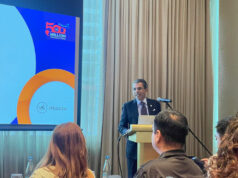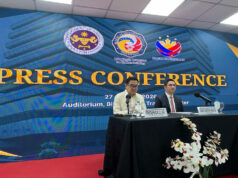House approves extra year of 2019 budget validity
THE House of Representatives, sitting as a plenary body, approved on second reading Wednesday a resolution extending the validity of the 2019 budget until December 2020.
House Joint Resolution No. 19, which consolidates House Joint Resolution No. 9 by Antique Rep. Loren Legarda and House Joint Resolution No. 10 by San Juan City Rep. Ronaldo B. Zamora and Davao Oriental 2nd district Rep. Joel Mayo Z. Almario, was approved also on Wednesday morning by the Appropriations Committee.
House Appropriations committee chairperson Isidro T. Ungab, representing Davao City’s third district, said the extension of the validity of 2019 budget will permit the full utilization of the appropriations.
“First, We will give more time for agencies to implement… second, Inabot tayo ng election ban (the election ban hindered spending)… So i-extend natin up to the end of 2020. (The solution is to extend validity the end of 2020),” Mr. Ungab said in chance remarks to BusinessWorld.
The budget passage was delayed by nearly four months, and when President Rodrigo R. Duterte signed the spending plan in April he vetoed about P95.3 billion in public works items.
The 2019 budget was the first use-it-or-lose-it spending plan passed under new “cash-based” budgeting rules, which gave agencies only a year to disburse the appropriations in order to ensure that funds were spent quickly. The budget languished in Congress past the turn of the new year, causing the government to miss the dry-season construction window for key infrastructure projects, which was cited as a drag on economic growth in the second quarter.
The passage of the 2019 budget was also delayed by wrangling between the two chambers about “insertions” allegedly made after the document’s finalization by virtue of bicameral approval. Many of the insertions fell foul of the presidential veto.
Mr. Ungab added that the House is also studying ways to make the second year of the cash-based budgeting rules more flexible.
“Pinagaaralan natin ng husto, yung 2019 kasi may birth pains yung start ng cash-based budgeting. (We have studied intensively the 2019 budget, which marked the start of cash-based budgeting) Kaya bigyan natin ng more leeway. So itong sa 2020, hopefully, second year na ito ng implementation ng cash-based budgeting. Hopefully, efficient na at may acceptance na (We believe we need more leeway in 2020. We hope that by the second year of cash-based budgeting the process will be more efficient and widely accepted),” he said. — Vince Angelo C. Ferreras



